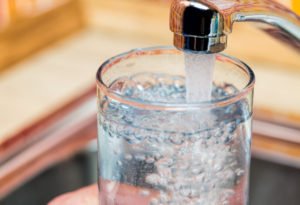The second stage of the Havelock North drinking water inquiry has been tabled in Parliament, with 51 recommendations including the universal treatment of drinking water.
 The Hawke’s Bay town was struck by a campylobacter outbreak in August 2016. In total, over 5000 people became ill and the outbreak was linked to four deaths. A Government Inquiry was formed to investigate the outbreak, and in its report found that 80 per cent of New Zealanders had drinking water that adhered to the safety standards.
The Hawke’s Bay town was struck by a campylobacter outbreak in August 2016. In total, over 5000 people became ill and the outbreak was linked to four deaths. A Government Inquiry was formed to investigate the outbreak, and in its report found that 80 per cent of New Zealanders had drinking water that adhered to the safety standards.
The Inquiry concluded that the contamination occurred following heavy rains, which caused contaminated water to flow into a pond about 90 metres from the water supply. Water from the pond entered the ground water and was pumped through the supply network.
In its first report, the Inquiry said the District Council did not have a comprehensive contingency plan for such a contamination event, and the effects of this lack of planning permeated through the response to the outbreak.
Among its recommendations, the Inquiry suggested a Drinking Water Regulator should be established to oversee reforms, which it suggested should include encouraging universal treatment of drinking water and changes to the Resource Management Act to give explicit protection to drinking water sources.
Attorney General David Parker said the Government had written to all Mayors and District Health Boards asking that they review their water supplies in light of the report’s findings. The Minister of Health would have a report before Cabinet by Christmas.
The report has been covered by media, including:
NZ Herald: Inquiry: More than 700,000 Kiwis may be drinking unsafe water
TVNZ: Twenty per cent of New Zealand drinking water ‘at risk’, report calls for urgent treatment of all supplies
Radio NZ: 800,000 NZers at risk of infection from unsafe water supply – report
Stuff.co.nz: Nearly 1 million Kiwis exposed to potentially unsafe drinking water
Stuff.co.nz: Drinking water inquiry: Here’s what you need to know